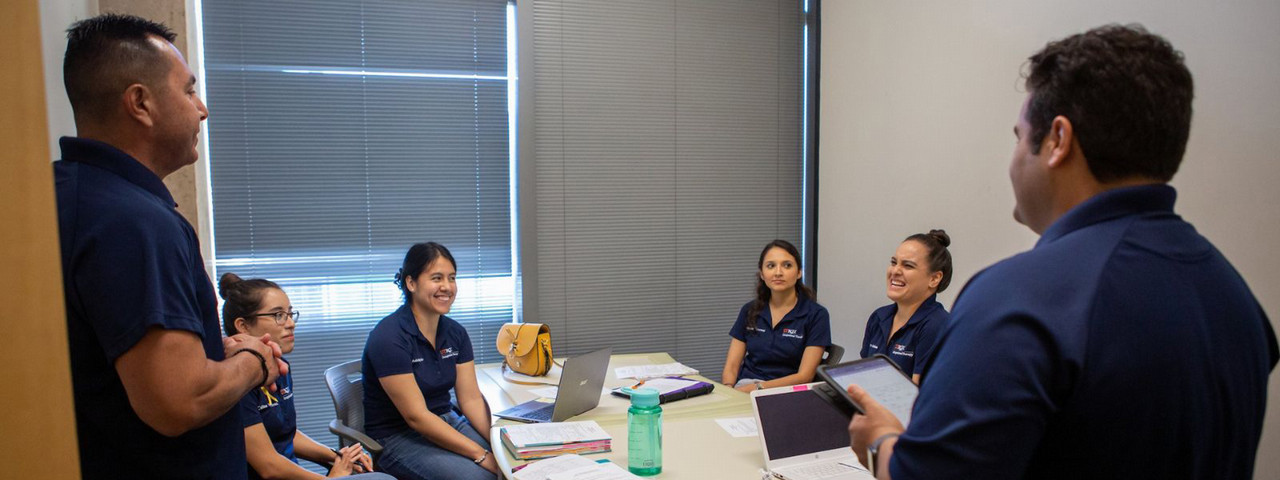All DPT students and graduates are required to have the requisite capacities and skills in observation, communication, motor abilities, intellect, and behavior to enter and successfully complete the program.
Observation
- Must be able to observe patients closely and at a distance to observe the patient’s condition and complete a patient exam.
- Immediately comprehend and respond to auditory instructions or requests.
Communication
- Effectively obtain, interpret and communicate pertinent information to peers, faculty, patients and the healthcare team.
- Communicate with patients and their families, verbally and in writing, in a clear and effective manner.
- Demonstrate empathy, compassion, and confidentiality in patient communication. Abide by HIPAA and other established laws and policies for healthcare providers.
Motor Skills
- Demonstrate the ability to elicit clinically relevant information during the patient examination process through palpation, auscultation, and percussion.
- Perform diagnostic tests and measures.
- Effectively and efficiently execute movements related to the examination and treatment of patients requiring strength, coordinated movement, equilibrium, and sensation.
- Efficiently move themselves, patients, and equipment between locations in the course of patient care.
- Demonstrate the physical stamina to complete both the didactic and clinical portions of professional education.
Intellectual Ability
- Demonstrate maturity, empathy and emotional intelligence as well as the ability to problem solve, make sound judgements, and think critically.
- Collect, measure, organize, prioritize, analyze and assimilate data in a limited time frame.
- Read and understand the medical literature and use this knowledge in problem solving and patient care.
- Read and interpret X-rays and EKG readings.
Behavior
- Understand and apply ethical standards in practice.
- Respond to emergencies in a calm and reasoned manner.
- Develop appropriate interpersonal relationships with peers, patients and their families.
- Function effectively under physical, mental and emotional stress.
- Demonstrate compassion, motivation, integrity, and cultural humility.
- Accept constructive criticism, modify behavior and practice as needed.

